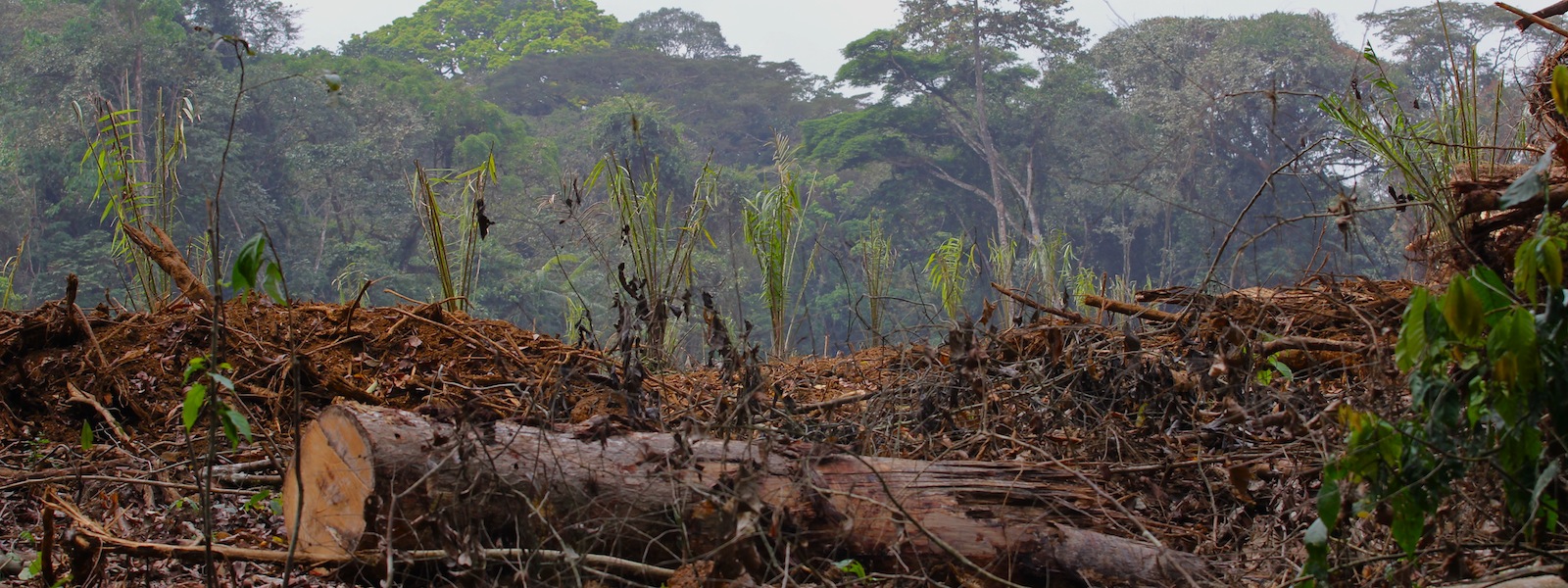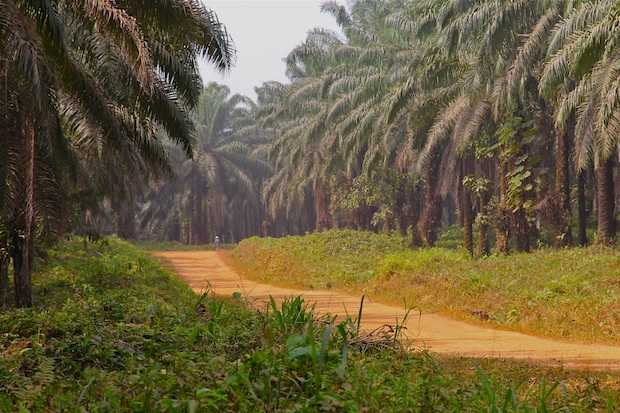Palm oil, from the fruit of the oil palm tree (Elaeis guineensis), is the world’s most widely used edible oil. Although the oil palm is native to west and central Africa and is widely cultivated in the region, most of the palm oil produced for the global market comes from the vast industrial plantations of Malaysia and Indonesia.
Growing demand for palm oil and rising production costs in Asia have led to a new land rush across the Congo Basin. Today palm oil is coming full circle, “returning” to its ancestral home: The mega-plantations are arriving in Africa, threatening both the environment and the livelihoods of countless smallholder palm growers and farmers.
According to a recent study published by the Rainforest Foundation (U.K.): “New industrial oil palm expansion projects currently underway cover 0.5 million hectares in the Congo Basin, which will result in a fivefold increase in the area of active large-scale palm plantations in the region. The area of projects announced since 2009, but not necessarily underway, covers 1.6 million hectares and palm oil companies are searching for larger areas. Approximately two-thirds of the total forest area of the Congo Basin’s forests – 115 million hectares – has suitable soil and climate for growing oil palms.”
Environmentalists and social justice activists fear the development of massive, industrial palm oil plantations in the Congo Basin, home to the world’s second largest tropical rainforest and a number of notoriously corrupt governments. Palm oil production has wreaked havoc in Indonesia and Malaysia, leading to massive deforestation, critical loss of biodiversity and violent social conflicts. Will the same occur here?
The unchecked growth of the industry, led by private investment and multinational agro-industrial firms, is occurring in a region lacking both regulation and oversight. In Cameroon, for example, close to 2 million hectares are earmarked for industrial palm oil projects, the result of secretive deals between companies and powerful officials. Opaque deal-making is the norm across the region where millions of hectares of forest and forest dwellers are now at risk.
We are at a critical juncture. Food security, economic development and environmental protection are all pressing issues that have been co-opted by the communications departments of industrial palm oil developers. Today we can read that mega projects involving extensive deforestation are sustainable and environmentally benign, and that palm oil produced by low-paid plantation labor for export and biofuels will provide significant benefits related to poverty reduction and food security. The industry often resorts to divide and conquer strategies, vilifying environmentalists and project opponents as the enemies of economic development, while ignoring the stark reality of industrial palm oil development in Southeast Asia.
Palm oil development in the Congo Basin need not be destructive , but the rapid expansion of industrial palm oil projects now underway across the Congo Basin has the potential for serious, negative environmental and social impacts. As the Rainforest Foundation’s new study shows, information gathering is critical to minimize risk:
Details of many of the new oil palm developments – including even geographical locations and agreements/contracts – are missing from publicly available information sources. Governments and investing companies may not have records of the presence of local and indigenous communities or important natural resources within the concessions earmarked for development … This information needs to be collected as a matter of urgency, and incorporated into government planning of new developments in order to increase transparency and minimise negative impacts on people and the environment.
Now is the time to bring clear, fact-based, independent information on African palm oil development to the widest possible audience. This is the Palm Watch – Africa mission.


Pls,i want this page to enlight me more about the usefulness of palm oil except from using it to cook and to make soap.
Sub-Saharan tropical African countries in the Oil Palm Belt and with the kind of huge land and human resources to develop modern oil palm plantations, able to attract highly specialized foreign capital investment should be allowed to do what Malaysia, Indonesia, Colombia have already done, namely use this gift of nature, the oil palm, to develop their economies, without the RSPO, WWF and Greenpeace breathing down on them.